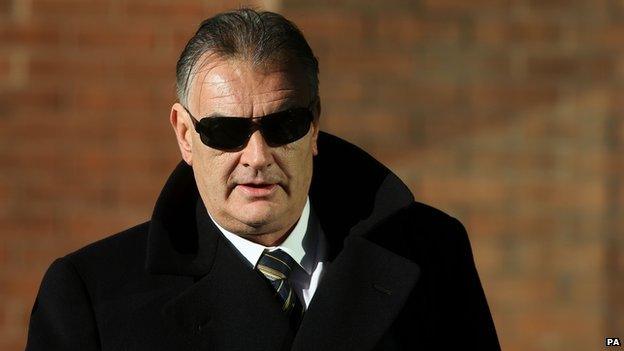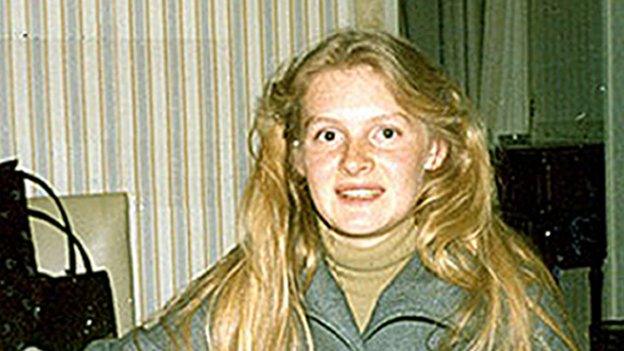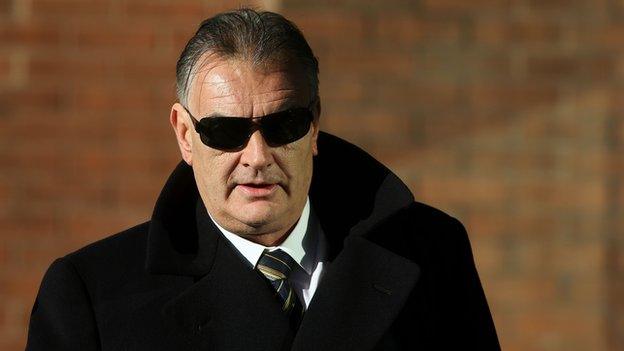Ian Bailey makes French link to Toscan du Plantier murder
- Published

Ian Bailey pictured outside the Four Courts in Dublin
A former journalist who claims he was framed for the unsolved murder of a film maker in Ireland has suggested there is a French link to the killing.
Ian Bailey is suing the Irish state for unlawful arrest after he was held twice over the killing of Sophie Toscan du Plantier.
The 39-year-old producer was found beaten to death outside her holiday home in west Cork in 1996.
Mr Bailey denies any involvement and has never been charged.
Mr Bailey told the High Court in Dublin on Thursday that after the murder he had invited two police officers to his home to discuss what he believed was a French link.
"I believe to this day, that there was a French connection," he said.
"My only agenda would be that of finding out the truth of the story.
"There were clear indications from France that were not being followed up."

Sophie Toscan du Plantier was found beaten to death in west Cork in 1996
Mr Bailey denied he wrote part of a story for the Sunday Tribune commenting on Ms Toscan du Plantier's husband, Daniel, not coming to Ireland after the killing.
He claimed she had been in a "cat fight" in a bar in Paris on the Wednesday before her murder.
He said she had clashed with her husband's mistress at a Christmas party in France.
Mr Bailey denied he was saying that Mr Toscan du Plantier - who died in 2003 - should have been a suspect.
Mr Bailey is suing the Garda (Police) Commissioner, Minister for Justice and Attorney General for wrongful arrest.
The Irish state denies all claims.
Mr Bailey was arrested on suspicion of murder on 10 February 1997 and again on 20 January 1998.
The court heard that he was detained several days after a "black joke" with a newspaper editor.
The first arrest came ten days after Sunday Tribune news editor Helen Callanan called police following a phone call with him.
The court heard she had asked him about rumours that he was a suspect.
"I said to her: 'Who is saying this?' She said: 'I can't tell you,' and I said; 'It's been suggested I did the murder here to get a story'.
"This was taken subsequently as what the Director of Public Prosecutions called an informal innocuous admission," he said.
"The DPP looked at it and said it was the antithesis of an admission and that it was an example of my black humour."
Mr Bailey said it was a regrettable remark.
"I said: 'Oh yeah, it was me. I did it to get a story'. It was her interpretation.
"It was obviously very foolish of me to have ever gone there," he said.
The hearing continues
- Published12 November 2014

- Published11 November 2014

- Published6 November 2014

- Published5 November 2014

- Published5 March 2012
